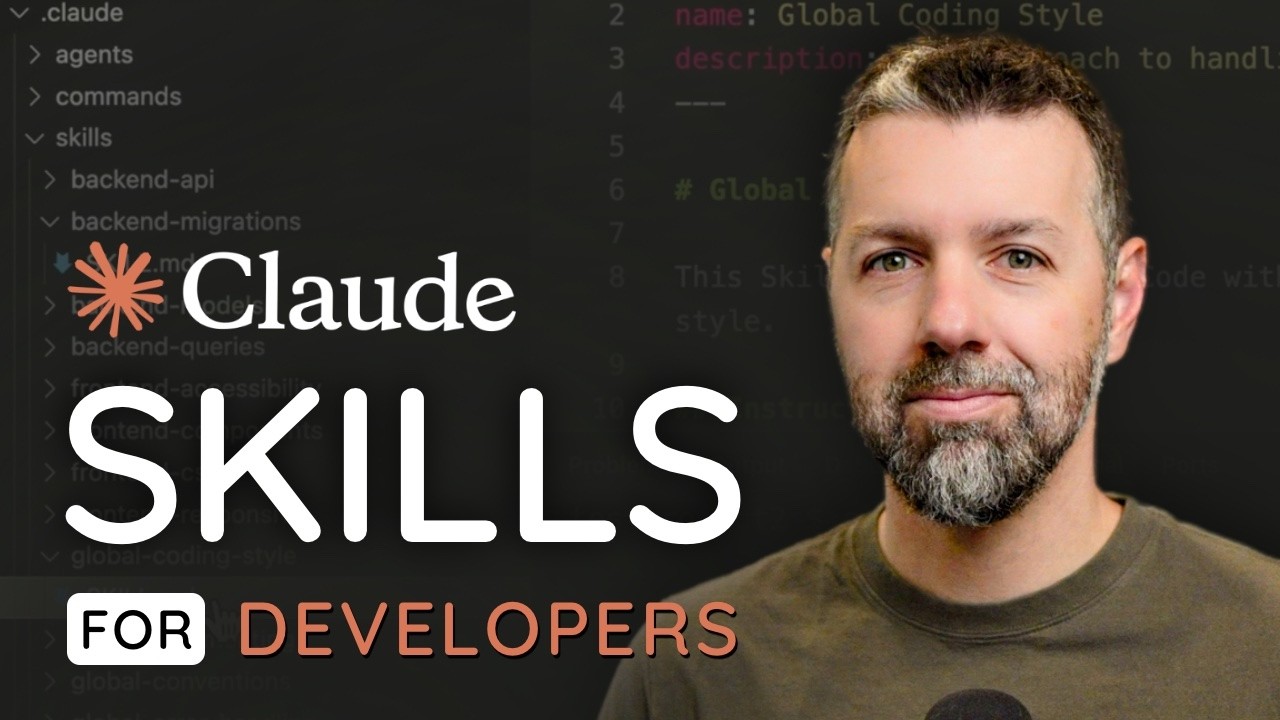In the video, Brian Castle examines Claude Code skills within Cloud Code, highlighting that while skills offer a new paradigm of intelligent discovery and enable complex workflows, they lack the direct invocation and predictability of existing tools like sub agents and slash commands. He concludes that skills are best suited for occasional, well-defined utility tasks that complement rather than replace current developer tools, with their practical value and adoption depending on individual workflows and ongoing experimentation.
In this video, Brian Castle explores the newly launched Claude Code skills feature, focusing on its role within Cloud Code for developers. While skills make perfect sense on consumer platforms by adding powerful capabilities for non-technical users without coding, their place in Cloud Code is less obvious. Developers already have sophisticated tools like sub agents, slash commands, and memories, so Brian investigates how skills fit into this existing toolkit. He highlights that skills introduce a new paradigm based on intelligent discovery rather than direct invocation, raising the question of whether they truly enhance productivity or solve a problem developers didn’t really have.
Brian systematically compares skills to other Cloud Code features. Unlike sub agents, which operate in isolated contexts, skills live within the main context and consist of an entire folder structure rather than a single markdown file. This structure allows skills to be mini codebases with templates, examples, and helper methods, enabling more complex workflows. However, skills are not directly invocable like slash commands or sub agents; instead, Claude is expected to discover and use them opportunistically based on the task at hand. This lack of guaranteed invocation creates uncertainty about when and how often developers will rely on skills.
Slash commands differ from skills in that they are precise and surgically invoked exactly when needed, whereas skills appear opportunistically when Claude deems them relevant. Memories, stored in the claw.md file, provide a way to inject persistent instructions but can bloat the context window if overloaded. Brian notes that skills trade predictability for context efficiency by only being loaded when necessary. He also mentions that in Agent OS version 2.1, skills support was added experimentally, converting standards into skills, but he often keeps this off to maintain a predictable development process.
Brian concludes that Claude Code skills are best suited for well-defined utility tasks that arise unpredictably, such as generating commit messages, performing code reviews, or creating PDFs. These are extensions to core coding tasks rather than replacements. Skills extend Claude’s capabilities in areas where it lacks built-in knowledge, while standards and memories fine-tune Claude’s existing coding abilities. Therefore, skills complement rather than replace existing tools, and their adoption will depend on individual developer workflows and preferences.
Overall, the skills feature is still in its early stages, and its practical value will evolve as developers experiment with it. Brian encourages viewers to explore skills but also to recognize their current limitations, especially regarding invocation reliability. He ties this exploration into his broader work on Agent OS, a spec-driven development system designed to bring predictability and structure to AI-assisted coding workflows. The video ends with an invitation to check out his other content and keep building with AI tools.
